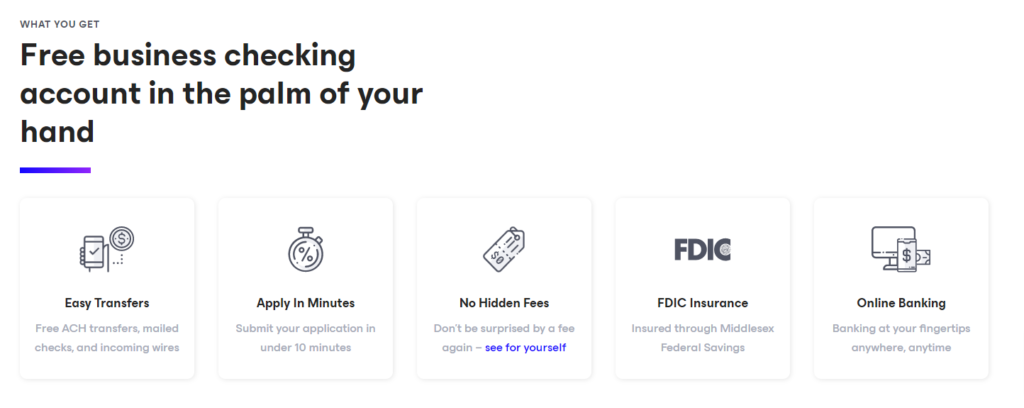It’s not an easy process to start a business, but tutoring is one of the least complicated options. Some shy away from creating a tutoring business, thinking it won’t be lucrative. Yet there is a fairly consistent demand for tutors and a strong potential for recurring revenue.
Tutors can start small with little to no overhead, allowing them to keep the majority of their profits to invest in an expanded business model.
Why Starting a Tutoring Business is Worth It
If you enjoy tutoring and teaching others and feel like the next natural step is turning it into a scalable business, it’s probably the right move for you. Making a business out of something you love to do is an excellent way to ensure its success. You have a passion for helping students already, so why not get paid for what you enjoy doing?
Another bonus is that tutoring businesses don’t require a lot of overhead or startup costs, especially if you don’t plan to have an office for your work. Traveling tutors can meet clients in their homes, libraries, schools, or cafes, saving the cost of monthly rent. Plus, students will already have most books and supplies they might need for a tutoring session. Stick to online tutoring, and your costs could be even lower.
Modern education has been thrust direction since COVID-19 forced many schools to go remote, an educational model that doesn’t work for everyone. Families have needed to adapt to get student education back on track, and tutoring has become a common supplement. Furthermore, the demand for knowledgeable tutors at all grade levels has existed before the pandemic and will likely continue into the foreseeable future.
Finally, a tutoring business offers vast opportunities to expand your professional network and resumé. Whether you plan to pursue higher education to become an educator or you’re interested in scaling your business in the future, you can meet other education professionals and gain valuable skills to apply to your goals.
The Investment Needed to Start a Tutoring Business
Entrepreneurial-minded people who want to start a low-cost business with plenty of profit potential could consider a tutoring business one of the best to grow. Tutoring businesses can take on many forms, including starting as a one-person show with no overhead and slim startup costs.
Starting a small tutoring business with just yourself as a tutor won’t require much time or money to get moving. Just be sure to get all the legal stuff out of the way by forming a legitimate business. We recommend ZenBusiness for simple business formation, which only takes about 10 minutes to complete.

Once you start making money, accounting software like QuickBooks can help you track everything for about $25 per month.
In the beginning, you might spend just a few hours a week tutoring. But suppose your ultimate goal is a full-time business. In that case, you should plan to tutor 30+ hours a week and spend between 5-10 hours on administrative tasks, like managing finances, scheduling clients, planning tutoring sessions, and marketing.
As for costs, your clients will usually have the books they need to study from, but you might need a few more supplemental resources plus supplies like pencils, paper, a calculator, or a dry erase board. Tutors also benefit from having a laptop and printer to research information and print materials to use with clients. Expect to spend between $500-$1000 total for these if you don’t already own them.
If you plan to market yourself online, you should consider setting up a website as a business hub for potential clients to find you. We suggest Wix if you go this route because of its simplicity to set up and affordable plans.
You can start a basic business website with online payments accepted (featuring full PCI DSS compliance to make your payment gateways secure) for just $23 per month. We’ve put together a buying guide of the best website builders to help you choose the right for your business.
Now that we’ve talked time and money, let’s dig into the necessary steps to start a tutoring business:
- Form a legal business
- Complete competitor research
- Determine your client base
- Work out the details of your business model
- Figure out pricing
- Get your business finances in order
- Start marketing your business
7 Steps to Start a Tutoring Business
This guide will walk you through the steps to take to get your tutoring business off the ground. Whether you want a solo tutoring business or one with multiple tutors, the steps to start will be similar.
Step 1 – Form a Legal Business
You might think that tutoring a few students on the weekend doesn’t justify the legal formation of a business. But, ultimately, Uncle Sam will want to make sure you’re paying your dues in taxes, and your state will want to know that you’re operating a business. It’s best to get this step out of the way first so that you can move on with getting your business running.
Many tutors start as sole proprietors, which won’t require you to do anything special. Once you begin conducting business activities, you automatically become a sole proprietor. Your business finances will run right along with your personal finances, and you’ll pay taxes for both using one tax return.
However, this could muddy the waters if you decide to scale. Keeping business and personal finances separate is a wise decision for most business owners, mainly because your personal finances could be in danger if any lawsuits come against your business in the future.
The best way to avoid this is by forming a limited liability company or LLC. Having an LLC allows you to choose whether you get taxed as a corporation or sole proprietor and keeps your personal finances protected should any legal issues arise. You can file paperwork on your behalf with your state, but several companies will cover the legwork for you.
We recommend using ZenBusiness for forming a tutoring business. The service starts at $49 plus state fees. It doesn’t take more than a few minutes, and you will always have online access to your documents.
To use ZenBusiness to form your LLC, simply select the state you want to file in and follow the instructions.

ZenBusiness includes free tools to help you select an eligible business name, explore your market, and find the right type of business entity. Chances are, an LLC is all you want for a tutoring business.
Also, don’t forget to check with your city about business requirements. Some localities require business licenses for almost any business, while others won’t.
Step 2 – Complete Competitor Research
A successful business stands out among its competition. Therefore, you should offer something different from your competitors that will make prospective clients choose you over them. First, learn what other tutoring companies are in your area that you’ll essentially compete with. Then, research your competitors before beginning your business to help you:
- Design your business model
- Determine your pricing
- Figure out what clients you should serve
- Determine pain points that you can solve
- Learn what competitors could improve on
- Identify gaps in marketing
To find local companies, you can check with your Chamber of Commerce, do a Google search, browse Yelp and other local business sites, or ask people you know. If you plan to use an online business model, you’ll need to spread your research to other online companies.
Crunchbase has a free trial to do this. First, search using the term tutoring to locate top tutoring companies to explore. Then, click their URLs to browse their websites, see what they’re offering, and gauge pricing.

Step 3 – Determine Your Client Base
What kind of clients do you want to serve? Tutoring companies can offer a breadth of services to different age groups. But when you’re starting, it’s best to keep a narrow focus to pinpoint your ideal clients. Consider:
- The subject areas you’re most skilled in
- The age group you’d like to teach most
- Your prior teaching or tutoring experience, if any
- What your competitors are already doing
- Whether it makes more sense for you to tutor online or offline
- What clients are readily available in your area
For instance, if you live in a college town, you might easily turn college students into clients. However, someone who lives 45+ minutes away from the nearest college or university might be better off tutoring elementary, middle, or high school kids. And having past experience tutoring in STEM subjects can make you more trustworthy to families looking for science and math tutoring than those seeking an English tutor.
Also, consider where the high-paying clients are. For example, students looking for help studying for the CPA Exam will want someone skilled in accounting, preferably with a CPA themselves. These clients may be willing to pay more for your expertise than someone looking for a general tutor would.
Step 4 – Work Out the Details of Your Business Model
There are a few ways you might decide to operate your tutoring business. Most commonly, these businesses take on one of these forms:
- Online tutoring: The tutor meets with students in groups or one-on-one through online video.
- Traveling tutor for schools and learning centers: The tutor travels to schools to conduct tutoring in one-on-one or group sessions.
- In-home tutoring: The tutor meets with students in their homes or the tutor’s home or office.
- Tutoring franchise: A tutoring company allows other business-minded individuals to start and grow company branches in their area.
Each business model requires different types of investments. Online tutoring requires the lowest costs to start. Generally, you’ll need a website, internet service, computer, and printer—things you’ll need no matter which business model you choose—and video conferencing software, like Zoho Meeting. This option is best for someone who wants to run an entirely home-based business with the opportunity to tutor students from all over the world.
Traveling and in-home tutors are also relatively low-investment business models. Aside from learning supplies like paper, pencils, and dry erase boards, you’ll just need your computer setup and website to get you moving. If your area has a high demand for tutoring, this option should serve you well. You can even save on traveling time if you have a separate home office space for sessions.
A franchise requires the most substantial investment of time and money, but it could also pull in the best profit. However, franchises limit how you can operate, so it’s not the best model for someone looking for complete control over their own company.
Step 5 – Figure Out Pricing
Your pricing will ultimately determine the type of client you attract and how easily you can turn a profit for your tutoring business. Price your services too high, and you could dissuade people from coming to you. Price your services too low, and you may not pull in the specialty clients you’re looking for. You could also sell yourself short when it comes to profiting.
A helpful way to determine pricing is, again, researching your competitors. Browse their websites to see what services they offer and how they price them. If offering local services, you can call local tutoring companies as a customer to ask about their services and pricing.
Consider whether charging hourly or offering prepaid packages might be better for your business model. See what competitors are doing, but also think about how you’ll work.
Do you need to add in travel costs? Do you have several hours of administrative tasks each week? A monthly fee for regular clients might be the best option. On the other hand, if you tutor online or locally, charging by the hour might work just fine for you if you tutor online or locally.
Keep your prices in line with what others are charging, but remain competitive. You might add something extra to your service, like a free trial tutoring session, to give clients more value over other companies.
Step 6 – Get Your Business Finances in Order
As we mentioned, keeping your personal and business finances separate is a good idea for most companies. This is especially true if you plan to grow your tutoring business beyond being a solo company one day.
Open a business banking account before you make your first dollar. We recommend Novo because of its low $50 minimum opening deposit and zero monthly fees. Note: Novo is a fintech, not a bank. Their banking services are provided by Middlesex Federal Savings F.A.; Member FDIC. That being said, Novo’s business checking is better for small businesses than any traditional bank’s offerings.
This is what you’ll use to receive payments and pay for any supplies, marketing, and other business expenses. Then, when tax time rolls around, you’ll have all your income and expenses in one bank account for easier filing.

You could also save yourself a lot of time tracking income and expenses and organizing finances for taxes by using accounting software. QuickBooks for small businesses is just $25 per month, and you’ll get your first three months for just $12.50 each. The service provides automatic income and expense tracking and tagging when you connect your business bank account. You can also send invoices and accept online payments.

Step 7 – Start Marketing Your Business
It’s time to spread the word about your tutoring business through marketing. Your marketing methods may vary, depending on the type of business model you chose and who your clients are. Some of the best advertising avenues for a tutoring business include online search engines, social media, and local marketing tactics, like mail brochures or radio advertising.
One step to take first is building a website. This acts as your online business hub where people can get more information about you and your services before booking sessions. We recommend Wix, a drag-and-drop builder that creates professional websites in minutes. Wix starts at $14 per month or $23 per month if you want to accept online payments, and you can try any plan for free for 14 days.

With your website up and running, you can drive traffic to your website through online advertising. Use Google AdWords or social media advertising to get customers for your online tutoring company or target locals searching for tutoring services.
Next Steps
With your tutoring business up and running, your next steps should work toward growing your business.
First, learn what clients think of your services. Do they love it all? Is there anything you can improve?
Consider asking for their email address to send a feedback survey after you’ve provided a session or two. You can create a free Google Form with a few questions for them to answer about the experience. Be sure to ask if you can use their comments as testimonials on your website, social media channels, or your other forms of marketing.
Online reputation management software might be a wise investment once you start growing and getting online reviews in multiple places.
As your client base grows, you might want to add a few more tutors to your team to scale your business. Our guide to conducting a job interview offers a few tips to find the best people for your company.
Here are a few more guides to help you learn new skills, find the right tools, and simplify your business endeavors:














